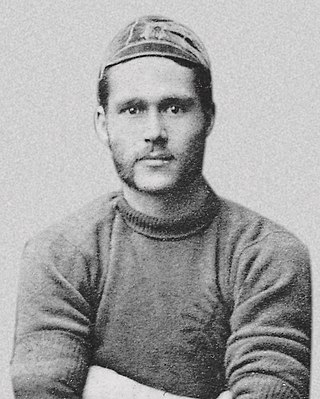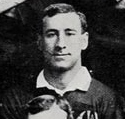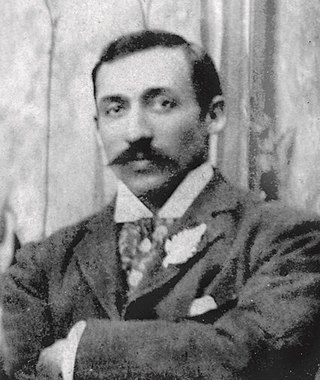Related Research Articles

New Zealand Rugby (NZR) is the governing body of rugby union in New Zealand. It was founded in 1892 as the New Zealand Rugby Football Union (NZRFU), 12 years after the first provincial unions in New Zealand. In 1949 it became an affiliate to the International Rugby Football Board, now known as World Rugby, the governing body of rugby union for the world. It dropped the word "Football" from its name in 2006. The brand name New Zealand Rugby was adopted in 2013. Officially, it is an incorporated society with the name New Zealand Rugby Union Incorporated.

David Gallaher was an Irish-born New Zealand rugby union footballer best remembered as the captain of the "Original All Blacks"—the 1905–06 New Zealand national team, the first representative New Zealand side to tour the British Isles. Under Gallaher's leadership the Originals won 34 out of 35 matches over the course of tour, including legs in France and North America; the New Zealanders scored 976 points and conceded only 59. Before returning home he co-wrote the classic rugby text The Complete Rugby Footballer with his vice-captain Billy Stead. Gallaher retired as a player after the 1905–06 tour and took up coaching and selecting; he was a selector for both Auckland and New Zealand for most of the following decade.
Paul Lane Penn was a New Zealand rugby union player, coach and administrator. A wing, Penn played for Taranaki and Wairarapa at provincial level, and later became coach of Wairarapa-Bush. He was an All Black selector from 1988 to 1991, and served as president of the New Zealand Rugby Football Union from 2001 to 2003.

Fabian Joseph Charles McCarthy was an Australian rugby union footballer who played for GPS and Toowoomba, represented Queensland at a state level, and the Wallabies at an international level.

The Whanganui Rugby Football Union (WRFU) is the governing body for rugby union in the Whanganui region of New Zealand. The Whanganui Rugby Football Union was formed in 1888.
Charles Kesteven Saxton was a New Zealand rugby union and cricket player, coach and administrator.

Joseph Astbury Warbrick was a Māori rugby union player who represented New Zealand on their 1884 tour to Australia and later captained the 1888–89 New Zealand Native football team that embarked on a 107-match tour of New Zealand, Australia, and the British Isles.

Thomas Rangiwahia Ellison, also known as Tom Ellison or Tamati Erihana, was a New Zealand rugby union player and lawyer. He led the first New Zealand representative rugby team organised by the New Zealand Rugby Football Union (NZRFU) on their 1893 tour of Australia. Ellison also played in the 1888–89 New Zealand Native football team on their epic 107-match tour, scoring 113 points, and 43 tries with the side.
Colin "Col" Windon, was a rugby union player and soldier who captained Australia – the Wallabies – in two Test matches in 1951. By age 18 Windon was playing at flanker for his club Randwick in Sydney's Shute Shield. After serving with the Second Australian Imperial Force in the Pacific Theatre during the Second World War, Windon resumed his rugby career in 1946. He was first selected for Australia for their tour of New Zealand that year. Despite the Wallabies losing both their Tests on tour, Windon impressed with his play.

Albert Edward Cooke was a New Zealand dual-code international rugby footballer of the 1920s and 1930s, who represented for New Zealand in both rugby union and rugby league.

Quentin Donald was a New Zealand rugby union player and local politician. He appeared in 23 matches for the New Zealand national side, the All Blacks, and served on the Featherston County Council for 27 years.

David Richmond Gage was a New Zealand rugby union footballer. He played with the 1888–89 New Zealand Native football team, and represented New Zealand in 1893, and once in 1896 when he captained the side.
George Gothard Aitken was a rugby union footballer who represented New Zealand – known as the All Blacks – and then Scotland. He was born in Westport, New Zealand, and was selected to play provincially for Buller at the age of 16. After moving to Wellington, Aitken played for the province from 1917, and from there was selected for the All Blacks side that faced South Africa when they toured New Zealand in 1921. After only two Test matches for the All Blacks, both as captain, he was dropped from the team. In 1922 Aitken was awarded a Rhodes Scholarship and travelled to England to study at the University of Oxford. He played for the university's rugby club, and from there he was selected for Scotland. He first represented the country in 1924, and in 1925 appeared in all of their Five Nations matches; Scotland won all four of those games, and in doing so achieved their first ever Grand Slam.

George Nicholson was a New Zealand rugby union footballer who played for New Zealand – the All Blacks – between 1903 and 1907. He played club rugby in Auckland for the City club, before making his provincial debut for Auckland in 1901. After playing for the North Island in 1902, he was selected for New Zealand's tour of Australia in 1903 where he played in the All Blacks' first ever Test match – against Australia in Sydney. The following year he was selected for New Zealand when they played a one-off Test against the British Isles who were touring New Zealand; New Zealand's first home international. In 1905 and 1906 he was selected for the All Blacks tour of Europe and North America. This was the first New Zealand national team to tour the Northern Hemisphere, and played 20 matches during the trip, but did not appear in any internationals. After returning to New Zealand he switched clubs to Ponsonby in 1907, and that year played two Tests for New Zealand against Australia – his last matches representing his country. After retiring from rugby he was involved in the sport as a referee, selector and administrator. He was one of the last surviving members of the Original All Blacks, as the 1905 team was called, and was present at the 75th jubilee celebrating for the formation of the New Zealand Rugby Football Union in 1967.

Frederick Roberts was a rugby union footballer who played for the New Zealand national team, commonly called the All Blacks. Playing at halfback, he played for the 1905 Original All Blacks, the first New Zealand representative team to tour the British Isles. He was the only halfback taken on the tour, and played in 28 of their 32 matches in the British Isles. New Zealand rugby historian Winston McCarthy wrote of Roberts that he was "a superb passer, a judicious runner from the scrum, and excellent two-foot kicker and a giant on defence." Roberts continued to be selected by the All Blacks until 1910, when he captained the New Zealand team on their tour of Australia.
Michael Joseph O'Leary was a New Zealand rugby union player. Primarily a fullback, O'Leary represented Wairarapa, Wellington, and Auckland at a provincial level. He was a member of the New Zealand national side, the All Blacks, in 1910 and 1913. He played eight matches for the All Blacks, including four internationals, of which two were as captain against the touring Australian team in 1913.
Alexander McNaughton "Barney" Armit was a New Zealand rugby union player. He represented New Zealand on their 1897 tour of Australia, however he is best remembered for having died from injuries sustained while playing a match in 1899. He represented Otago from 1893 until his death, and played for the South Island in the Inter-Island match of 1897.
William "Mac" McKenzie, also known as "Offside Mac", was a rugby union player who represented New Zealand in the 1890s. Playing at wing-forward, McKenzie was first selected for the New Zealand national team on their 1893 tour of Australia, and continued to be selected up until the end of New Zealand's 1897 tour of Australia. In his 20 matches for the national side, McKenzie scored 23 points.

William Thomas "Tabby" Wynyard was a rugby union footballer who toured with the 1888–89 New Zealand Native football team and the 1893 New Zealand team. He also played first-class cricket for both Wellington and Auckland.
Captain Walter "Wattie" Pukauae Barclay,MM, QSM, was a New Zealand rugby union player, sports administrator and military officer. He captained the New Zealand Māori Rugby Team and holds the record for the highest number of tries scored for the team with 40 career tries.
References
- 1 2 3 Luxford.
- ↑ McCarthy 1968, pp. 22–23.
- ↑ Rugby Football.